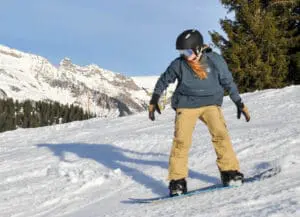
How many books are kids reading these days? Is it as bad as it seems? Back in my staff reporter days, I used to have this really mean news editor. This isn’t surprising to anyone who’s ever worked in a newsroom. ALL news editors are mean – it’s in the job description.
My news editor used to look at my carefully crafted stories and would read them out to me in a cynical voice.
“This will reduce costs by 60%? Where did you get that from?”
“Well, the guy in the press release said it when I interviewed him.”
“And you believed him?”
That was what my editor said about virtually all of my stories until I got a clue and realised that people can tell you ANYTHING. It doesn’t make it true. Especially if they’re trying to sell you something.
Handling press releases
As bloggers, we get sent press releases all the time, or corporate “bios” that include all sorts of claims. We’re market leaders, we’re the first, we’re the biggest, we’re the cheapest. Oh, really?
I find myself increasingly frustrated reading blogs that trot out these “facts” without question when even the most basic research would reveal more fiction than fact. And it matters – when you repeat a claim, as a blogger, without checking it out, it’s YOUR credibility on the line just as much as it is the PR agency or the brand.
A great example is the story all over Twitter (and the media) today about “3.8m children don’t own a single book.” The National Literacy Trust, which published the report in question, talks about this fact, and how it’s working with kids in disadvantaged areas to try and teach them vital literacy skills.
Wowzers. One in three kids don’t own a book. That’s a REALLY shocking figure, isn’t it? But hang on, does it sound true, to you? Of all the kids you know, how many don’t own a book? Maybe one or two? Perhaps none? Not a third, I bet.
Being a cynical creature, I went to look at the website of the National Literacy Trust and downloaded the full report that the press release is based on. And I find some interesting facts in the appendix at the end of the report.
- The data is based on 18,000 children in just 100 schools, in areas that are slightly above average in terms of income. So not disadvantaged, exactly. We’re looking at 6,000 kids who don’t own a book. To go from there to 3.8m is quite an extrapolation.
- Moreover, all the kids taking the survey are aged 8-14. In fact, 90% of them are aged 11-14. An age when lots of kids do tend to read books quite a bit less for pleasure – some kids I know of this age are busy reading magazines and online content, rather than books.
- The kids taking the survey performed exactly in line with national standards in terms of their reading attainment – which is to say that 80% of them performed at or above the expected reading level for their age. So not reading doesn’t seem to be doing them any harm.
So what we have here is not REALLY a story that says a third of kids don’t own a book, and their literacy skills are in crisis. It’s a story that says a third of older children aren’t owning books, although they have the literacy skills you’d expect of children of their age.
So… not such a big story, after all, it seems.
My point here isn’t that literacy is bad, or we shouldn’t do more to promote books to kids of ALL ages. I’m a big fan of the written word. And words in general, as it happens.
It’s just that if you are writing about stories that are being pushed out via press releases, it’s important that you don’t JUST BELIEVE THEM. Ask a few questions. Can they prove what they say? Does it sound credible to you? If a company claims A causes B, can they really prove it? Just because one thing (eating ice cream) tends to happen around the same time as something else (being eaten by a shark) doesn’t mean one causes the other (sharks eat people because they’ve been eating ice cream).*
What do you think? Does it matter if bloggers don’t fact check? Should we be doing more to verify stories before writing about them – or do you rely on newspapers to do that?
* Thanks to @LondonMUGirl for the analogy on Twitter, which I’ve nicked.




